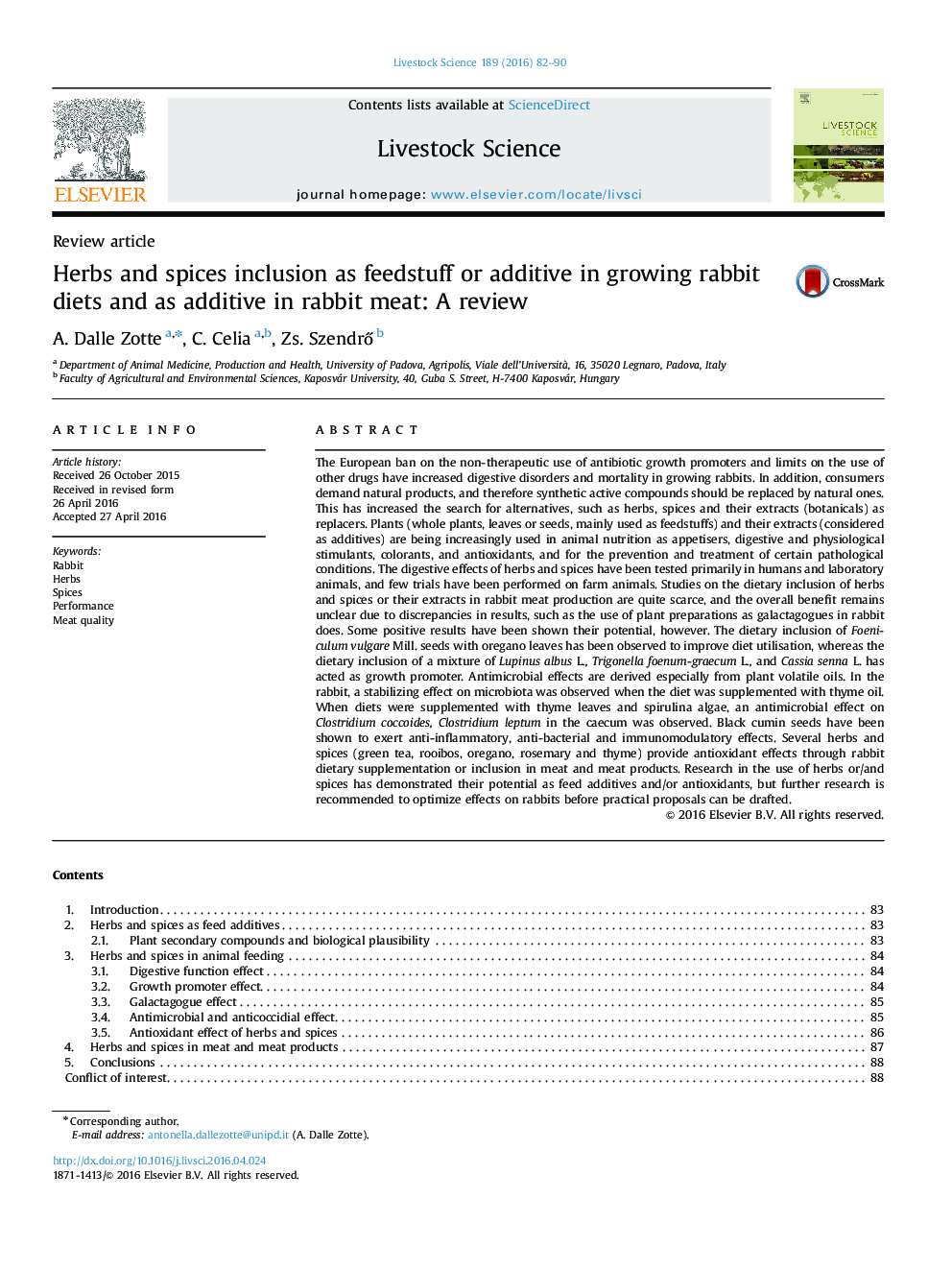| کد مقاله | کد نشریه | سال انتشار | مقاله انگلیسی | نسخه تمام متن |
|---|---|---|---|---|
| 2446911 | 1553943 | 2016 | 9 صفحه PDF | دانلود رایگان |
• The review explores the use of herbs and spices in rabbits feeding.
• The use of herbs and spices in rabbit meat is also considered.
• Some of them are beneficial as growth promoters, antimicrobials and antioxidants.
• Others, added to the fresh meat, can extend the shelf life.
The European ban on the non-therapeutic use of antibiotic growth promoters and limits on the use of other drugs have increased digestive disorders and mortality in growing rabbits. In addition, consumers demand natural products, and therefore synthetic active compounds should be replaced by natural ones. This has increased the search for alternatives, such as herbs, spices and their extracts (botanicals) as replacers. Plants (whole plants, leaves or seeds, mainly used as feedstuffs) and their extracts (considered as additives) are being increasingly used in animal nutrition as appetisers, digestive and physiological stimulants, colorants, and antioxidants, and for the prevention and treatment of certain pathological conditions. The digestive effects of herbs and spices have been tested primarily in humans and laboratory animals, and few trials have been performed on farm animals. Studies on the dietary inclusion of herbs and spices or their extracts in rabbit meat production are quite scarce, and the overall benefit remains unclear due to discrepancies in results, such as the use of plant preparations as galactagogues in rabbit does. Some positive results have been shown their potential, however. The dietary inclusion of Foeniculum vulgare Mill. seeds with oregano leaves has been observed to improve diet utilisation, whereas the dietary inclusion of a mixture of Lupinus albus L., Trigonella foenum-graecum L., and Cassia senna L. has acted as growth promoter. Antimicrobial effects are derived especially from plant volatile oils. In the rabbit, a stabilizing effect on microbiota was observed when the diet was supplemented with thyme oil. When diets were supplemented with thyme leaves and spirulina algae, an antimicrobial effect on Clostridium coccoides, Clostridium leptum in the caecum was observed. Black cumin seeds have been shown to exert anti-inflammatory, anti-bacterial and immunomodulatory effects. Several herbs and spices (green tea, rooibos, oregano, rosemary and thyme) provide antioxidant effects through rabbit dietary supplementation or inclusion in meat and meat products. Research in the use of herbs or/and spices has demonstrated their potential as feed additives and/or antioxidants, but further research is recommended to optimize effects on rabbits before practical proposals can be drafted.
Journal: Livestock Science - Volume 189, July 2016, Pages 82–90
